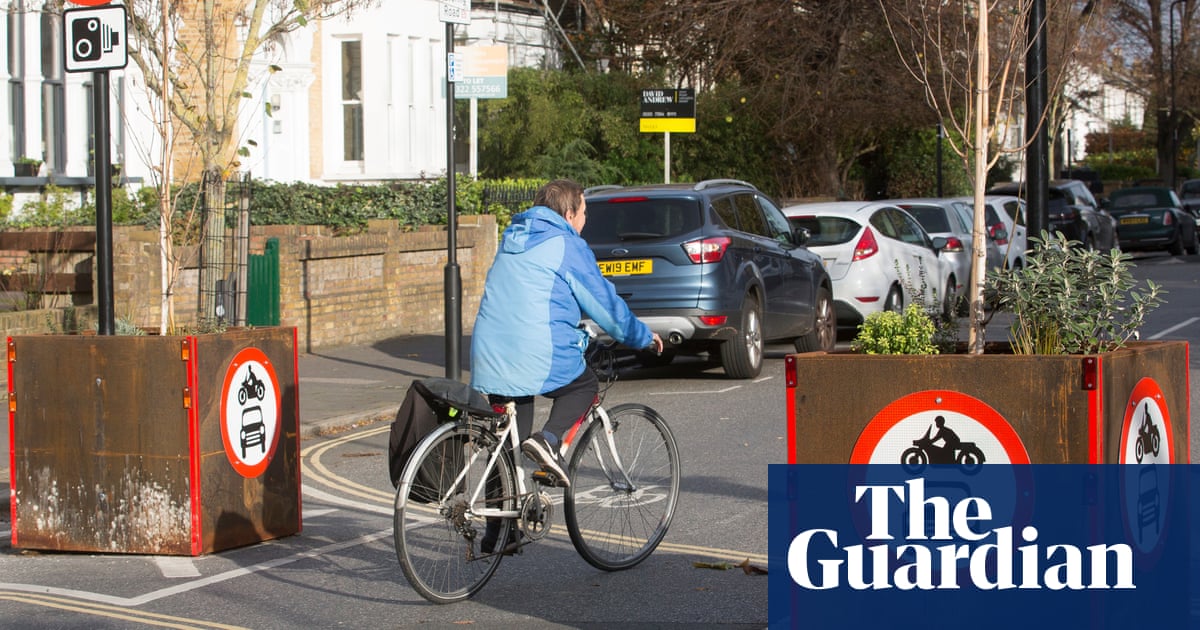Reform UK’s pledge to remove all low-traffic neighbourhoods from the council areas it controls looks to be achieved in record time after the 10 local authorities said they do not actually have any in place.
Zia Yusuf, Reform UK’s chair, said last week there would be a “large-scale reversal” of existing LTNs in the 10 areas acrossEnglandwhere the party won control of the councils in local elections on 1 May.
“We view these schemes with the same suspicion as mass immigration and net zero,” Yusuftold the Telegraph, adding: “You can expect, if you live in a Reform council, for there to be a much higher bar for any proposals for LTNs and for the large-scale reversal of these existing LTNs.”
The Guardian contacted the councils now run by Reform – Derbyshire, Doncaster, Durham, Kent, Lancashire, Lincolnshire, North Northamptonshire, Nottinghamshire, Staffordshire and West Northamptonshire – and they all said they had no such schemes.
LTNs are traffic interventions that filter smaller, residential roads using either physical barriers like bollards and planters or numberplate-recognition cameras to prevent motor vehicles using them as through routes.
While the wider idea of using what are known as modal filters to make residential roads safer for walking and cycling has been used intermittently for decades, the branding as LTNs usually refers to schemes introduced from 2020, when the Conservative government encouraged councils to install them.
Some of these LTNs were put in quickly, bringing complaints about traffic displaced to boundary roads and some congestion. However, studies of LTNs, including one commissioned by Rishi Sunak’s LTN-sceptical government, have generallyfound they work well and are popular.
Asked about the lack of LTNs in the areas they run, a Reform spokesperson pointed to mapping data showing the proportion of roads within the council areas not open to through-traffic. However, this would also count longer-established non-LTN roads without through traffic, such as cul-de-sacs and housing estates. It is not known whether Reform plans to open these up as through routes.
Reform has also pledged to sack council staff working on diversity issues or efforts connected to net zero, although it is unknown how many staff this would actually involve. Some councils, such as Lincolnshire, have said they have no diversity staff.
A Liberal Democrat source said: “Reform are utterly clueless about how to run a council. From councillors who won’t take up their seats to schemes that don’t exist, it’s clear that they don’t understand the needs of their communities.
“Now they have some power, they need to learn how to Google things first. Liberal Democrats will be holding Reform’s feet to the fire and standing up for our communities.”
